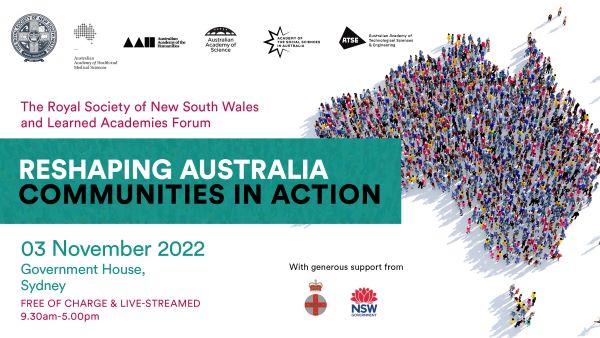Royal Society of NSW Awards for 2022
The Council of the Royal Society of New South Wales is pleased to announce its Awards for 2022 at the 1309th Ordinary General Meeting, held at the State Library on NSW on the evening of 7 December 2022.
These include the Cook Medal, which is the Society’s highest honour, and awards for research and scholarly excellence. This year, there have been no awards for service to the Society.
The award winners are listed below, together with links to information about the awards and their recipients.
The Cook Medal
James Cook Medal — Emeritus Professor John Church AO FAA FTSE FAMS FAGU
Awards for Research Excellence
Clarke Medal and Lecture (Geology) — Professor Andrew (Andy) Baker FAGU
Edgeworth David Medal — Dr Tim Doherty
History and Philosophy of Science Medal — Emeritus Professor Stephen Gaukroger FRSN FAHA FRHistS FRSA
Burfitt Prize — Distinguished Professor Susan Scott FAA FEurASc
Liversidge Memorial Lecture — Professor Timothy Schmidt FRSN FRACI CChem
Warren Prize — Professor Anita Wing Yi Ho-Baillie FRSN FAIP
Jak Kelly Award — Mr Shankar Dutt
Royal Society of NSW Scholarships — Ms Clara Chung Ming Liu, Mr Thomas Mesaglio, and Ms Anyang (Anya) Zhao
James Cook Medal
Emeritus Professor John Alexander Church AO FAA FTS FAMS FAGU
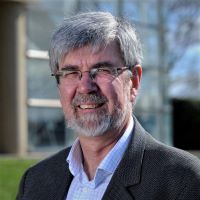
The James Cook Medal is awarded periodically by the Royal Society of New South Wales for outstanding contributions to science and human welfare in and for the Southern Hemisphere.
John Church, an Emeritus Professor in the Climate Change Research Centre, UNSW Sydney is the world’s pre-eminent authority on the rate of 20th century sea-level rise, with his work on quantifying historical changes having been pivotal in revolutionising our modern view of sea level rise, including the first detection of the acceleration in the rate of rise. His ground-breaking papers, published with both national and international colleagues, explain a long-standing conundrum about the causes for the observed 20th century sea-level rise. He has provided substantial improvements in estimates of ocean heat uptake, resolving discrepancies between observations and models as well as the causes. In addition, he has been an international leader in sea level assessments and projections and his work has established that anthropogenic climate forcing is responsible for the majority of observed sea level rise since 1970.
Awards For Research Excellence
Clarke Medal and Lecture (Geology)
Professor Andrew (Andy) Baker FAGU
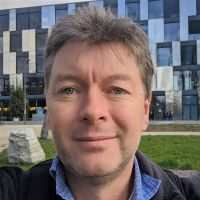 The Clarke Medal is awarded each year for distinguished research in the natural sciences, conducted in Australia and its territories, in the fields of botany, zoology, and geology (considered in rotation). For 2022, the medal has been awarded in geology.
The Clarke Medal is awarded each year for distinguished research in the natural sciences, conducted in Australia and its territories, in the fields of botany, zoology, and geology (considered in rotation). For 2022, the medal has been awarded in geology.
Professor Andy Baker, of the School of Biological, Earth & Environmental Sciences at UNSW Sydney, is an international authority in cave science, hydrology and geochemistry, especially as it pertains to our understanding of karst — complex underground systems formed from dissolution of soluble rocks, characterised by sinkholes, caves and speleothems (e.g., stalagmites). Having led over AU$10M in external projects in NSW since 2010, he has also published more than 260 internationally refereed papers, including highly-cited publications in Nature, Nature Communications, and Science.
Edgeworth David Medal
Dr Tim S. Doherty
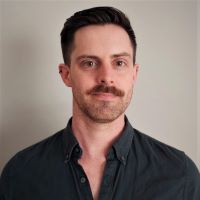 The Edgeworth David Medal is awarded annually for distinguished research by a young scientist under the age of 35 years for work undertaken mainly in Australia or contributing to the advancement of Australian science.
The Edgeworth David Medal is awarded annually for distinguished research by a young scientist under the age of 35 years for work undertaken mainly in Australia or contributing to the advancement of Australian science.
Dr Tim Doherty, an ARC DECRA Fellow in the School of Life and Environmental Sciences at the University of Sydney, has made extraordinary contributions in the fields of predator-prey dynamics, movement ecology and fire ecology, emerging as a pre-eminent scientist of his generation in developing these fields and in exploring how each is influenced by human modification of the environment. Dr Doherty’s transformative insights have been achieved by combining field experiments with novel theoretical frameworks and global syntheses. Key contributions include revealing that invasive predators have contributed to more than 50% of bird, mammal, and reptile extinctions globally, and conducting vital applied field research on fire and invasive species that informs conservation policy and management.
History and Philosophy of Science Medal
Emeritus Professor Stephen Gaukroger FRSN FAHA FRHistS FRSA
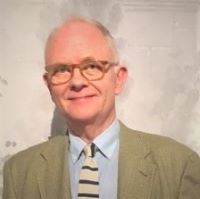 The Society’s History and Philosophy of Science Medal is awarded annually to recognise outstanding achievements in the History and Philosophy of Science, especially the study of ideas, institutions, and individuals of significance to the practice of the natural sciences in Australia.
The Society’s History and Philosophy of Science Medal is awarded annually to recognise outstanding achievements in the History and Philosophy of Science, especially the study of ideas, institutions, and individuals of significance to the practice of the natural sciences in Australia.
Emeritus Professor Stephen Gaukroger is one of the world’s leading historians of science and philosophy. Educated at the University of London and the University of Cambridge, he has held positions at Cambridge, Melbourne, and Sydney, as well as visiting professorships at Oxford, London, Aberdeen, and the École normale supérieure – Paris Sciences et Lettres. Now Emeritus Professor of History of Philosophy and History of Science at the University of Sydney, he is the author of sixteen books, including an internationally renowned intellectual biography of Descartes (1995). His work has been translated in Arabic, Chinese, French, German, Italian, Portuguese, and Russian. His major work is the 4-volume study of science and the shaping of modernity: The Emergence of a Scientific Culture, 1210-1685 (2006); The Collapse of Mechanism and the Rise of Sensibility: 1680-1760 (2010); The Natural and the Human, 1739-1841 (2016); Civilization and the Culture of Science, 1795-1935 (2020).
Burfitt Prize Lectureship
Distinguished Professor Susan M. Scott FAA FEurASc
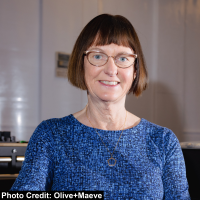 The Walter Burfitt Prize, established as a result of a generous gift to the Society by Dr W.F. Burfitt BA MB ChM BSc, is awarded at intervals of three years for research in pure or applied science. The winner must be resident in Australia or New Zealand, and whose papers and other contributions published during the past six years are deemed of the highest scientific merit.
The Walter Burfitt Prize, established as a result of a generous gift to the Society by Dr W.F. Burfitt BA MB ChM BSc, is awarded at intervals of three years for research in pure or applied science. The winner must be resident in Australia or New Zealand, and whose papers and other contributions published during the past six years are deemed of the highest scientific merit.
Distinguished Professor Susan Scott, from the Australian National University College of Science, is an internationally recognised mathematical physicist who has made fundamental advances in our understanding of the fabric of space-time in general relativity, and in gravitational wave science. She has pioneered breakthrough results probing the existence and nature of space-time singularities, the global structure of space-time, and possible initial and final endstates for cosmological models representing our Universe. Professor Scott has also been a pioneer in the analysis of astrophysical signatures in gravitational wave experiments, including the searches for gravitational waves from asymmetric neutron stars and from inspiralling binary systems of black holes and neutron stars. She has played an important role in the development and promotion of gravitational research worldwide, and a leading role in Australia’s participation in the first direct detection of gravitational waves in 2015.
Liversidge Lectureship
Professor Timothy W. Schmidt FRSN FRACI CChem
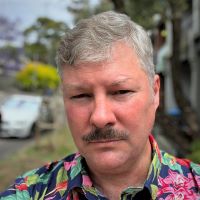
The Liversidge Lecture, established under the terms of a bequest to the Society by Professor Archibald Liversidge MA LLD FRS, who was Professor of Chemistry in the University of Sydney from 1874 to 1907 and was one of the Council members who sponsored the Society's Act of Incorporation in 1881, is awarded at intervals of two years for the purpose of encouragement of research in Chemistry.
Professor Timothy Schmidt, of the School of Chemistry at UNSW Sydney, is internationally recognised as a molecular spectroscopist working on diverse problems from astrophysics to renewable energy. In the gas phase, he has recorded spectra of many hydrocarbon radicals for the first time and discovered new electronic excitations of the dicarbon molecule. In the condensed phase, his work concentrates on triplet-triplet annihilation and singlet fission for solar energy applications. His work has been recognised by a number of prizes including the Broida Prize (International Symposium on Free Radicals 2015), the Coblentz Award (2010), the RACI Physical Chemistry Lectureship and the RACI Physical Chemistry Medal (2021).
Return to the top of the page
Warren Prize
Professor Anita Wing Yi Ho-Baillie FRSN FAIP
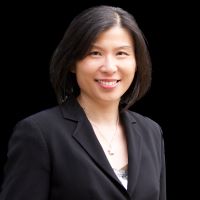
The Warren Prize consists of a medal and lectureship in recognition of research by engineers and technologists in their early to mid-career. Early-career researchers will have established a publication record in top-tier journals and wish to reach a broader audience, while mid-career researchers will have completed a larger body of work relevant to society.
Professor Anita Ho-Baillie is a pioneer in the development of next-generation solar cells that are key to transitioning to a carbon-free-economy. Focussing on multi-junction solar cells, the aim of her research is to increase their power conversion efficiency towards 40% and 50% when the efficiencies of commercially available silicon solar cells are around 25%. In addition, her recent breakthroughs in improving the durability of perovskite solar cells are critical steps towards commercial viability. Despite the early stage of her career, her outstanding contributions to the important field of energy research are recognised around the world. Four times a Clarivate Analytics Highly Cited Researcher, in 2021 she was named Top Australian Researcher in Sustainable Energy by The Australian and by leading journal ACS Energy Letters, one of 30 leaders in advancing perovskite solar cells and one of 40 Women Scientists at the Forefront of Energy Research in the World.
Jak Kelly Award
Mr Shankar Dutt
 The Jak Kelly Award was created in honour of Professor Jak Kelly (1928–2012), who was Head of Physics at the University of NSW from 1985 to 1989, was made an Honorary Professor of the University of Sydney in 2004, and was President of the Royal Society of NSW in 2005 and 2006. Its purpose is to encourage excellence in postgraduate research in physics. The award is supported by the Royal Society of NSW and the Australian Institute of Physics, NSW branch. The winner is selected from a shortlist of candidates who made presentations at the most recent Australian Institute of Physics (NSW Branch) postgraduate awards meeting.
The Jak Kelly Award was created in honour of Professor Jak Kelly (1928–2012), who was Head of Physics at the University of NSW from 1985 to 1989, was made an Honorary Professor of the University of Sydney in 2004, and was President of the Royal Society of NSW in 2005 and 2006. Its purpose is to encourage excellence in postgraduate research in physics. The award is supported by the Royal Society of NSW and the Australian Institute of Physics, NSW branch. The winner is selected from a shortlist of candidates who made presentations at the most recent Australian Institute of Physics (NSW Branch) postgraduate awards meeting.
Shankar Dutt is a PhD Candidate in the Research School of Physics at the Australian National University. He investigates a nanopore-based sensing platform for the detection of different biomolecules in complex solutions including DNA, proteins and antibodies. This allows tailoring of the biomolecules' translocation kinetics and, combined with artificial intelligence, aims at early diagnosis of neurodegenerative disorders such as Alzheimer's Disease and Multiple Sclerosis.
Royal Society of New South Wales Scholarships
The Royal Society Scholarships are awarded annually in order to acknowledge outstanding achievements by young researchers in any field of science. Applicants must be enrolled as research students in a university in either NSW or the ACT on 1 January in their year of nomination.
For 2021, three RSNSW Scholarships have been awarded:
- Miss Clara Chung Ming Liu — PhD Candidate, School of Biomedical Engineering, University of Technology Sydney
- Mr Thomas Mesaglio — PhD Candidate, School of Biological, Earth, and Environmental Sciences, UNSW Sydney
- Ms Anyang (Anya) Zhao — PhD Candidate, John Curtin School of Medical Research, Australian National University
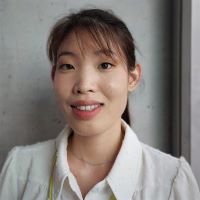 Miss Clara Liu Chung Ming is a PhD candidate in the School of Biomedical Engineering at the University of Technology Sydney under the supervision of Dr Carmine Gentile. Her research focusses on the bioengineering of advanced 3D in vitro models of the human heart pathophysiology, including “the-heart attack-in-a-Petri-dish” and heart failure using patient derived-stem cells. In particular, Clara has demonstrated that acetylcholine (a natural compound produced by our body) plays a protective role against myocardial infarction (heart attack) and drug-induced heart failure using her cells. Clara’s multidisciplinary project is carried in collaboration with the University of Sydney/Charles Perkins Centre/Sydney Heart Bank, Royal Prince Alfred Hospital and Baker Heart and Diabetes Institute/Monash University. Clara’s research has focussed also on the effects of Sars-CoV-2 on human heart pathophysiology, as well as the bioengineering of pre-eclampsia-induced heart failure using patient-derived stem cells. Her research has received several awards, including Australian Government Research Training Program Stipend (2021), FEIT HDR Women in Engineering and IT awards (2021), ASBTE Rapid Fire Presentation Award (2022) and NSW Education Waratah Scholarship (2022).
Miss Clara Liu Chung Ming is a PhD candidate in the School of Biomedical Engineering at the University of Technology Sydney under the supervision of Dr Carmine Gentile. Her research focusses on the bioengineering of advanced 3D in vitro models of the human heart pathophysiology, including “the-heart attack-in-a-Petri-dish” and heart failure using patient derived-stem cells. In particular, Clara has demonstrated that acetylcholine (a natural compound produced by our body) plays a protective role against myocardial infarction (heart attack) and drug-induced heart failure using her cells. Clara’s multidisciplinary project is carried in collaboration with the University of Sydney/Charles Perkins Centre/Sydney Heart Bank, Royal Prince Alfred Hospital and Baker Heart and Diabetes Institute/Monash University. Clara’s research has focussed also on the effects of Sars-CoV-2 on human heart pathophysiology, as well as the bioengineering of pre-eclampsia-induced heart failure using patient-derived stem cells. Her research has received several awards, including Australian Government Research Training Program Stipend (2021), FEIT HDR Women in Engineering and IT awards (2021), ASBTE Rapid Fire Presentation Award (2022) and NSW Education Waratah Scholarship (2022).
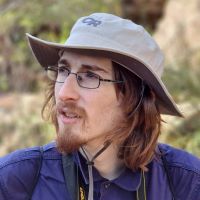 Mr Thomas Mesaglio works on quantifying our knowledge of Australian plant biodiversity, developing identification tools, survey and species description protocols and general data frameworks for improving this knowledge. Although much of his research focuses on analyses of ‘citizen science’ data, he has published scientific papers in disciplines including marine forensics, bushfire recovery and invertebrate ecology and taxonomy. As part of the Environment Recovery Project team, he received the Department of Industry, Science and Resources’ 2022 Eureka Prize for Innovation in Citizen Science. He has published two books: a guide to scientific etymology and a seashell field guide and is a curator and forum moderator on the citizen science platform iNaturalist, with 39,000 observations and 227,000 identifications made for other users.
Mr Thomas Mesaglio works on quantifying our knowledge of Australian plant biodiversity, developing identification tools, survey and species description protocols and general data frameworks for improving this knowledge. Although much of his research focuses on analyses of ‘citizen science’ data, he has published scientific papers in disciplines including marine forensics, bushfire recovery and invertebrate ecology and taxonomy. As part of the Environment Recovery Project team, he received the Department of Industry, Science and Resources’ 2022 Eureka Prize for Innovation in Citizen Science. He has published two books: a guide to scientific etymology and a seashell field guide and is a curator and forum moderator on the citizen science platform iNaturalist, with 39,000 observations and 227,000 identifications made for other users.
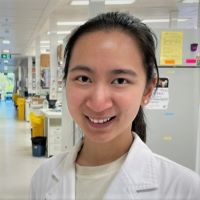 Ms Anyang Zhao's research is focused on the clinically important foodborne pathogen called Listeria, which causes 20-30% of death in humans. She has identified that Listeria infection triggers inflammation and cell death, which are biological processes crucial for overcoming Listeria infection. Excessive inflammation caused by the immune system while fighting off Listeria infection can lead to sepsis and death. Anyang’s research aims to inhibit such excessive inflammation and could lead to the development of therapies against sepsis. During her first year of PhD study, Anyang published a preview article in Cell Host & Microbe (2022) as co-first author, and further co-authored two primary research articles in Science Immunology (2022) and Nature Communications. Her research achievements have been recognised by multiple prizes, scholarships and grants.
Ms Anyang Zhao's research is focused on the clinically important foodborne pathogen called Listeria, which causes 20-30% of death in humans. She has identified that Listeria infection triggers inflammation and cell death, which are biological processes crucial for overcoming Listeria infection. Excessive inflammation caused by the immune system while fighting off Listeria infection can lead to sepsis and death. Anyang’s research aims to inhibit such excessive inflammation and could lead to the development of therapies against sepsis. During her first year of PhD study, Anyang published a preview article in Cell Host & Microbe (2022) as co-first author, and further co-authored two primary research articles in Science Immunology (2022) and Nature Communications. Her research achievements have been recognised by multiple prizes, scholarships and grants.
RESHAPING AUSTRALIA: COMMUNITIES IN ACTION
Dates: Thursday 3 November 2022, 9.30 am–5.30 pm AEDT
Venue: Live-streamed and now on YouTube
Brochure: A program brochure, comprising the program, abstracts and speaker biographies, is available from this website.
On this page:
Summary
The tumultuous last decade has witnessed a decline in political consensus and a growing perception that our formal institutions of government have failed to tackle fundamental challenges in areas such as climate change and social inequality.
As the 2022 Federal election demonstrated, many Australian communities, corporations, and interest groups have become increasingly active as voices for political change. The ‘Uluru Statement from the Heart’ is one striking example of a community demanding that they be shapers of policy, not just the recipients of what others think should be done.
Such activism builds on a long tradition of community participation in Australia, which has developed a vibrant and extensive not-for-profit sector. There are now more than 50,000 organisations, a million employees, and five million volunteers, providing services and support in many areas of our civil life.
These community and volunteer efforts are essential in managing the immediate and long-term impacts of social and environmental crises including catastrophic fires, droughts, and floods. Successful initiatives have involved local communities collaborating with corporations, businesses, research, and government agencies to find innovative solutions.
This year, the Royal Society of NSW in partnership with Australia’s Learned Academies and under the gracious patronage of Her Excellency the Honourable Margaret Beazley AC KC, Governor of New South Wales, will explore this dynamic of communities in action. It will canvass some of the latest research on the factors shaping disparities in social, economic and well-being outcomes for Australians and address four key areas - health, education, infrastructure, and the environment.
The Forum will highlight examples of community collaboration with business, not-for-profit, research, and government organisations to drive meaningful change. It will conclude with a consideration of how greater community participation might impact long-term policy development for the benefit of all Australians.
The Royal Society of NSW acknowledges the generous support of Her Excellency the Honourable Margaret Beazley AC KC, Governor of New South Wales, and the Office of the New South Wales Government Chief Scientist and Engineer.
Program and Presentations
The full video recording of each session is accessed by clicking on the YouTube video images, while direct access to each of the speakers' presentations and segments in the sessions is available through the links shown in the program text.
| Welcome and Official Opening |
|
|
Introduction to the Governor and Acknowledgement of Country |
|
| Session I: Setting the Scene |
|
| Emeritus Professor Julianne Schultz AM FAHA Moderator and Rapporteur Professor Richard Holden FASSA Professor of Economics, UNSW Sydney President, Academy of Social Sciences in Australia Alison Frame Deputy Secretary, Social Policy Group, Department of Prime Minister and Cabinet Australian Government Dr Kalinda Griffiths Scientia Lecturer, Centre for Big Data Research in Health UNSW Sydney Dr James O'Donnell Lecturer, School of Demography and ANU Social Cohesion Grand Challenge Australian National University Panel Discussion and Audience Q&A Moderated by Emeritus Julianne Schultz |
|
| Session II: Health and Communities |
|
| Emeritus Professor Julianne Schultz AM FAHA Moderator and Rapporteur Bernie Shakeshaft (link to talk summary) Founder and Director BackTrack Youth Works Sally Redman AO Chief Executive Officer Sax Institute Sydney Distinguished Professor Elizabeth Elliott AM FRSN FAHMS Distinguished Professor of Paediatrics and Child Health University of Sydney Professor Maree Teeson AC FAHMS FASSA Professor and Director, The Matilda Centre for Research In Mental Health and Substance Use University of Sydney Panel Discussion and Audience Q&A Moderated by Emeritus Professor Julianne Schultz |
|
| Session III: Natural and Built Environment |
|
|
Emeritus Professor Julianne Schultz AM FAHA |
|
| Session IV: Education |
|
| Emeritus Professor Julianne Schultz AM FAHA Moderator and Rapporteur Professor Peter Shergold AC FRSN FASSA Chancellor Western Sydney University Professor Pasi Sahlberg Professor of Education Southern Cross University Professor Kim Beswick Professor of Mathematics Education and Director, Gonski Institute for Education UNSW (Sydney) Professor Lisa Jackson Pulver AM FRSN Deputy Vice-Chancellor (Indigenous Strategy and Services) University of Sydney Panel Discussion and Audience Q&A Moderated by Emeritus Professor Julianne Schultz |
|
| Session V: Summary and Solutions |
|
|
Panel Discussion: Dr Susan Pond AM FRSN FTSE FAHMS |
|
Contents of JProcRSNSW, Vol. 155, Part 1, June 2022
The complete Volume 155, Part 1, June 2022.
Robert E. Marks
Editorial: Snakes, quantum computers, and Global Risks.
Journal & Proceedings of the Royal Society of New South Wales 155: 1-4
Refereed Papers:
Simon J. Devitt.
Blueprinting quantum computing systems.
Journal & Proceedings of the Royal Society of New South Wales 155: 5-39
Christine N. Zdenek.
Australia is the lucky country when it comes to snakes.
Journal & Proceedings of the Royal Society of New South Wales 155: 40-47
Reprinted Paper:
Len Fisher and Anders Sandberg.
A safe governance space for humanity: necessary conditions for the governance of Global Catastrophic Risks.
Journal & Proceedings of the Royal Society of New South Wales 155: 48-71
The Royal Society of NSW and Five Academies Forum: Power and Peril in the Digital Age
The Governor, Margaret Beazley.
Opening Address.
Journal & Proceedings of the Royal Society of New South Wales 155: 72-73
The Organisers.
Preamble.
Journal & Proceedings of the Royal Society of New South Wales 155: 74-75
Cathy Foley, Hugh Durrant-White.
Science and Technology underpinning the Digital Age: Past, Present and Future.
Journal & Proceedings of the Royal Society of New South Wales 155: 76-84
Frances Foster-Thorpe, Sue Bennett.
Digital Lifetime of a Child Born Today.
Journal & Proceedings of the Royal Society of New South Wales 155: 85-90
Shawn Ross, Teresa K.D. Anderson.
Avoiding a Digital Dark Age.
Journal & Proceedings of the Royal Society of New South Wales 155: 91-97
Zoran Bolevich, Louisa Jorm.
Health of Our Digital Child.
Journal & Proceedings of the Royal Society of New South Wales 155: 98-103
Dale Lambert, Rory Medcalf.
Safety and Security of Our Digital Child.
Journal & Proceedings of the Royal Society of New South Wales 155: 104-112
PhD Theses:
Meghan Castelli.
Sex and stress: is stress both a mediator and a consequence of sex reversal in the Central Bearded Dragon (Pogona vitticeps)?
Journal & Proceedings of the Royal Society of New South Wales 155: 113
Elena Castilla.
Robust statistical inference for one-shot devices based on divergences.
Journal & Proceedings of the Royal Society of New South Wales 155: 114-115
Ella Kurz.
Parturescence: a post qualitative inquiry into women's opportunities for transcendence and transformation through birth.
Journal & Proceedings of the Royal Society of New South Wales 155: 116
Benjamin Kwan.
The development and implementation of youth mental health outcome measures within measurement feedback systems.
Journal & Proceedings of the Royal Society of New South Wales 155: 117-118
Obituary:
Peter Kriesler, Tim Harcourt, and Robert Marks.
Geoffrey Harcourt AC FRSN (1931-2021)
Journal & Proceedings of the Royal Society of New South Wales 155: 119-121
The Royal Society of New South Wales Awards for 2022:
James Cook Medal, Clarke Medal, Edgeworth David Medal, History and Philosophy of Science Medal, Warren Prize, Archibald Ollé Prize, Liversidge Lecture, Jak Kelly Award, RSNSW Scholarships, Poggendorff Lectureship, RSNSW Medal, RSNSW Citation
Journal & Proceedings of the Royal Society of New South Wales 155: 122-128
ISSN (online): 2653-1305
Royal Society of NSW and the Learned Academies Forums
This page provides access to the abstracts, content, and reports from the annual Forum that is conducted jointly by the Royal Society of NSW and the Learned Academies at Government House, Sydney.
Please follow the links below to the content that is available.
- 2021 Forum: Power and Peril of the Digital Age
- 2020 Forum: After COVID-19: Creating the Best of Times from the Worst of Times
- 2019 Forum: Making SPACE for Australia
- 2018 Forum: Towards a prosperous and sustainable Australia: what now for the lucky country?
- 2017 Forum: The Future of Reason in a Post-Truth World
- 2016 Forum: Society as a complex system—implications for science, practice, and policy
- 2015 Forum: The future of work
RESHAPING AUSTRALIA: COMMUNITIES IN ACTION
Dates: Thursday 3 November 2022, 9.30 am–5.30 pm AEDT
Venue: YouTube live streaming (link to follow) and face-to-face at Government House Sydney (by invitation)
Cost: No charge.
Brochure: to follow
The Royal Society of New South Wales and the Learned Academies acknowledge the generous support of Her Excellency the Honourable Margaret Beazley AC KC, Governor of New South Wales and the Office of the NSW Chief Scientist and Engineer.
Summary
The tumultuous last decade has witnessed a decline in political consensus and a growing perception that our formal institutions of government have failed to tackle fundamental challenges in areas such as climate change and social inequality.
As the 2022 Federal election demonstrated, many Australian communities, corporations and interest groups have become increasingly active as voices for political change. The ‘Uluru Statement from the Heart’ is one striking example of a community demanding that they be shapers of policy, not just the recipients of what others think should be done.
Such activism builds on a long tradition of community participation in Australia, which has developed a vibrant and extensive not-for-profit sector. There are now more than 50,000 organisations, a million employees and five million volunteers, providing services and support in many areas of our civil life.
These community and volunteer efforts are essential in managing the immediate and long-term impacts of social and environmental crises including catastrophic fires, droughts, and floods. Successful initiatives have involved local communities collaborating with corporations, businesses, research, and government agencies to find innovative solutions.
This year, the Royal Society of NSW in partnership with Australia’s Learned Academies and under the gracious patronage of Her Excellency the Honourable Margaret Beazley AC KC, Governor of New South Wales, will explore this dynamic of communities in action. It will canvass some of the latest research on the factors shaping disparities in social, economic and well-being outcomes for Australians and address four key areas - health, education, infrastructure, and the environment.
The Forum will highlight examples of community collaboration with business, not-for-profit, research, and government organisations to drive meaningful change. It will conclude with a consideration of how greater community participation might impact long-term policy development for the benefit of all Australians.
PROGRAM: THURSDAY 3 NOVEMBER 2022
| Time | |
| 09:00–09:25 | Registration |
| 09:25–09:30 | Guests seated |
| 09:30–09:45 | Governor is announced into the Ballroom Commencement of Proceedings |
| Official Opening Her Excellency the Honourable Margaret Beazley AC KC Governor of New South Wales |
|
| Welcome and Acknowledgement of Country Susan Pond AM FRSN FTSE FAHMS President, Royal Society of New South Wales |
|
| Introduction to Program and Moderator/Rapporteur Stephen Garton AM FRSN FAHA FASSA Chair, Forum Program Committee Principal Advisor, Office of the Vice-Chancellor and President University of Sydney |
|
| Moderator and Rapporteur Julianne Schultz AM FAHA Emeritus Professor, Media and Culture, Griffith University Chair, The Conversation Media Group |
SESSION I: SETTING THE SCENE
Despite a national myth of egalitarianism, contemporary social commentary, and research point to a growing divide between the ‘haves’ and ‘have nots’ in Australian society. This session will examine some of the broad economic and demographic patterns across Australia and explore in particular some of the indices of Indigenous disadvantage. It will set the scene for considering how communities are working to address social disenfranchisement and overcome health, economic and environmental challenges.
| 09:45–11:15 | Richard Holden FES FASSA Professor of Economics at UNSW Business School President, Academy of the Social Sciences in Australia |
| Alison Frame Deputy Secretary, Social Policy Group Department of the Prime Minister and Cabinet, Australian Government |
|
| Kalinda Griffiths Scientia Lecturer, Centre for Big Data Research in Health, UNSW Sydney Research and Education Lead for Aboriginal and Torres Strait Islander Health Victorian Comprehensive Cancer Centre |
|
| James O’Donnell Lecturer, School of Demography and ANU Social Cohesion Grand Challenge, College of Arts and Social Sciences Australian National University |
SESSION II: HEALTH AND COMMUNITIES
Although Australia has one of the best and most equitable health systems in the world, there are distinct challenges and inequities which need to be recognised and addressed. This session will consider these issues in urban, regional and remote, and culturally diverse settings, and in the under-resourced sectors of mental and Indigenous health and show how community initiatives can help provide innovative solutions.
| 11:15–12:30 | Bernie Shakeshaft Founder and Director BackTrack Youth Works |
| Sally Redman AO Chief Executive Officer Sax Institute Sydney |
|
| Elizabeth Elliott AM FRSN FAHMS Distinguished Professor of Paediatrics and Child Health University of Sydney |
|
| Maree Teesson AC FAHMS FASSA Professor and Director, Matilda Centre for Research in Mental Health and Substance Use, and NHMRC Leadership Fellow University of Sydney |
LUNCH ON THE VERANDAH (12:30–13:30)
SESSION III: NATURAL AND BUILT ENVIRONMENT (INCLUDING CLIMATE CHANGE & INFRASTRUCTURE)
Our natural and built environments are increasingly threatened by issues including climate change and the accumulation of waste. Local communities, businesses, researchers, and coalitions of activists have been working creatively on climate mitigation interventions, technological solutions for net zero emissions, and waste management and recycling. This session will look at how governments, communities and other stakeholders are coming together to create more harmonious and resilient futures for our natural and built environments.
| 13:30–14:45 | Louise Adams FTSE Chief Operating Officer Aurecon |
| David Schlosberg FASSA Professor of Environmental Politics and Director, Sydney Environment Institute University of Sydney |
|
| Tone Wheeler Principal and Director Environa Studio |
|
| Angelica Kross Community Activist |
SESSION IV: EDUCATION
Research continues to underline the transformative potential of education that is accessible to all – regardless of disability, race, language, religion, gender, and income – to enrich technological innovation, economic growth, political stability, and social cohesion. This session will take stock of Australia’s investment in education and offer examples and strategies for an education-led path to a more equal, more inclusive, and more successful Australia.
| 14:45–16:00 | Pasi Sahlberg Professor of Education Southern Cross University |
| Peter Shergold AC FRSN FASSA Chancellor Western Sydney University |
|
| Marcia Langton AO FASSA Associate Provost, Redmond Barry Distinguished Professor, and Foundation Chair of Australian Indigenous Studies University of Melbourne |
SESSION IV: SUMMARY AND SOLUTIONS
| 16:00–17:00 | Ariadne Vromen FASSA Sir John Bunting Chair of Public Administration, Crawford School of Public Policy Australian National University |
| Julianne Schultz AM FAHA Emeritus Professor, Media and Culture, Griffith University Chair, The Conversation Media Group |

